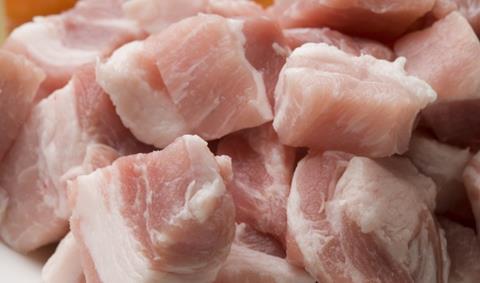An investigation by Farmers Weekly has revealed that allegedly, a UK food manufacturer has been passing off large quantities of foreign pork as British – sometimes in excess of tens of thousands of tonnes a week.

Meat trade associations are warning that this should be a wakeup call for the sector as well the Food Standards Agency (FSA) and the National Food Crime Unit (NFCU).
The processor involved cannot be named at this stage for legal reasons, but Meat Management asked for comment from the main meat industry trade bodies, representing processors and manufacturers. It appears from comments received that various bodies have been looking for closer co-operation with industry regulators for some considerable time, to help root out any fraudsters.

Nick Allen, CEO of the British Meat Processors Association (BMPA) said: “The industry has come a long way since Horsegate ten years ago, but this latest issue highlights the fact that nobody should be complacent.
“Criminal activity will always find new ways to beat the system. This issue also highlights the need for the NFCU and industry to work more closely together and share intelligence with a greater emphasis on prevention rather than prosecution.
“There also needs to be greater use of technology and data to provide checks and balances. It is in no one’s interest that we have stories like this hitting the headlines and it undermines all the good and responsible work that has gone on and continues to go on in the industry.”
The Association of Independent Meat Suppliers (AIMS) also reacted quickly to the latest reports published in relation to the National Food Crime Unit’s investigation into the alleged fraudulent labelling of beef by a food business operator.
“The Food Standards Agency website says on its home page that their ‘fundamental mission is food you can trust. By this, we mean that people can trust that the food they buy and eat is safe and what it says it is.’ That is an unequivocal statement of fact,” said Norman Bagley, Head of Policy at AIMS.
“However, it is clear to us that when the FSA Board was made aware of the NFCU’s investigation two years ago in December 2021 and again, 12-months later, neither the board nor any member of the executive staff simply asked the basic question of what level of risk to consumers this business posed.”

Bagley continued: “AIMS has had sight of correspondence from Darren Davies, Head of the Food Standard Agency’s NFCU, in which he advised that they alerted retailers, possibly via the secure Food Industry Intelligence Network (FIIN) members area in May 2022, some 5-months after first advising the FSA board about there being a live high level food fraud investigation. Yet, the FIIN has, according to their website, just 58 members from a supply chain of 1000’s of food business operators.
“It is utterly reprehensible and totally inexcusable that food manufacturers and foodservice businesses, some of whom supply some of society’s most vulnerable consumers, were not alerted at any time to date by the NFCU as to there either being a possibility of labelling fraud or of a risk to public health.”
He also added: “It has become clear that senior management at FSA and NFCU have failed to protect the public and honest companies from the risks to human health and fraud, not only do they have serious questions to answer but management at the highest levels should now consider their positions.
“Some at the FSA and NFCU have some very serious questions to answer, and I urge them to come clean on every investigation that they are currently undertaking to restore trust in the food consumers are buying and eating.”
These latest food fraud allegations come 23 years after the Rotherham chicken meat fraud case, which resulted in five people being jailed for a total of 26 years and nine months. It is also almost a year to the day when on 1st April 2000 the Food Standards Agency was established. At the time of the Rotherham fraud it said then that: “Lessons must be learned.”
Subscribers to Farmers Weekly can read its full investigation here.
This story was originally published on a previous version of the Meat Management website and so there may be some missing images and formatting issues.












